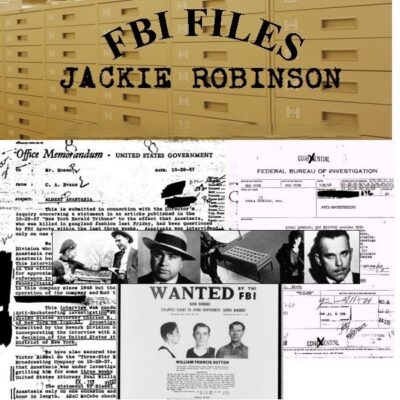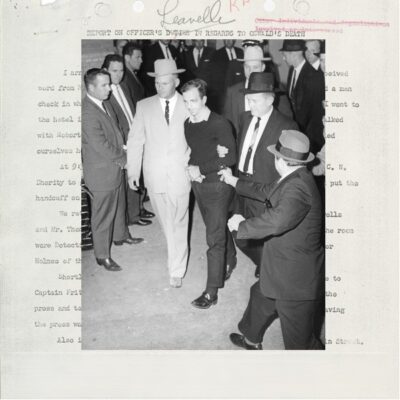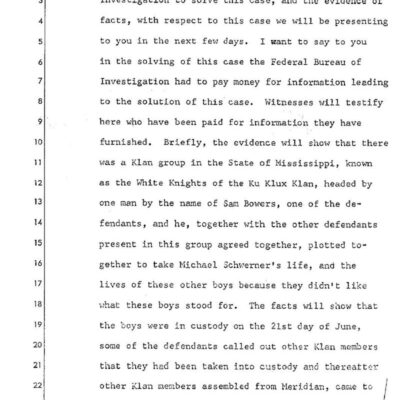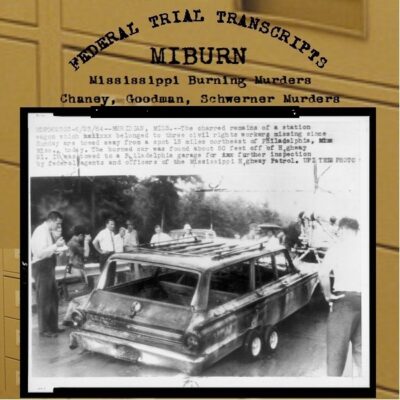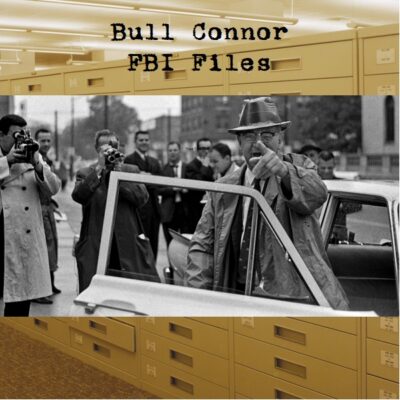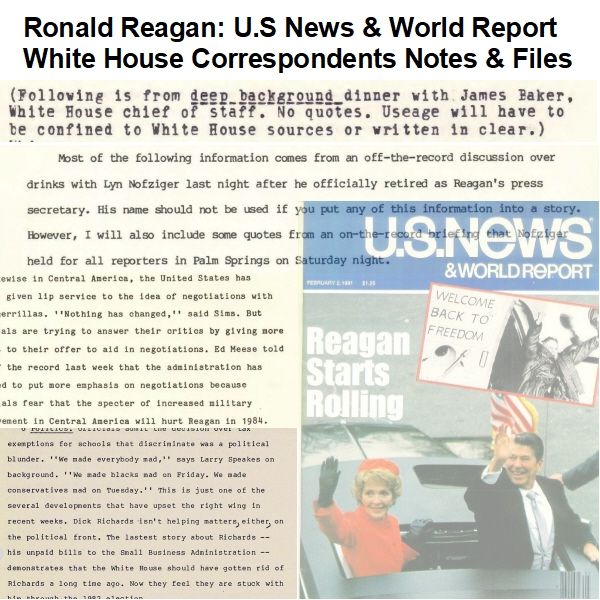
Ronald Reagan: U.S News & World Report White House Correspondents Notes
$19.50
Description
Reagan Administration: U.S. News & World Report Files, 1980-1983
Timeline of Main Events (November 1980 – September 1983)
This timeline is based on the information explicitly mentioned in the provided text regarding the notes and files of U.S. News & World Report correspondents covering the Reagan administration.
- November 1980: Start date for the U.S. News & World Report correspondent’s notes and files included in this collection, indicating the beginning of their intensive coverage of the Reagan transition.
- Late 1980 – Early 1981 (Implied): Carter-Reagan transition period, during which U.S. News & World Report reporters began gathering information and building sources within the incoming Reagan administration.
- Early 1981 (Implied): Coverage of the early relationship between President Reagan and Speaker of the House Tip O’Neill, suggesting initial interactions and dynamics between the executive and legislative branches.
- Early 1981 (Implied): Reporting on Reagan ordering the dismissal of 13,000 PATCO (Professional Air Traffic Controllers Organization) air traffic controllers who went on strike. This event likely generated significant news and internal White House discussions.
- October 6, 1981 (Implied): Coverage of the assassination of Egyptian President Anwar Sadat, a significant foreign policy event during this period that would have been closely followed by the Reagan administration.
- 1981 (Implied): Reporting on proposed tax cuts, a key element of Reagan’s domestic economic agenda.
- 1981 – 1983 (Ongoing): Coverage of the Soviet Union and the Polish Solidarity movement, highlighting the Reagan administration’s engagement with Cold War tensions and international labor movements.
- March 30, 1981 (Implied): Coverage of the assassination attempt on President Reagan and his subsequent recovery. This major event would have dominated news and internal White House discussions.
- 1983 (Implied): Reporting on the Strategic Defense Initiative (SDI), a significant and controversial defense policy announced by Reagan.
- Early 1980s (Implied): Coverage of the Soviet grain embargo, a foreign policy tool used by the US during the Cold War.
- Early 1980s (Implied): Reporting on the Social Security Reform Bill, a major piece of domestic legislation addressing the long-term solvency of the Social Security system.
- July 7, 1981 (Implied): Reagan’s nomination of Sandra Day O’Connor to the Supreme Court to fill the seat of retiring Justice Potter Stewart. This was a historic nomination as O’Connor became the first woman on the Supreme Court.
- 1981 – 1983 (Ongoing): Reporting on a power struggle between Secretary of State George Shultz and National Security Advisor William Clark regarding the direction of Reagan’s foreign policy. This was specifically highlighted in the U.S. News & World Report article “Reagan’s New Foreign Policy Offensive.”
- Mid-1980s (Specific Interview Timeframe): Background interview with White House Chief of Staff James A. Baker in Los Angeles (while Baker was on vacation), where he harshly criticized Counselor to the President Ed Meese and discussed various topics including the federal budget, defense spending cuts, Israel, the sale of AWAC planes to Saudi Arabia, a forthcoming shake-up of the White House press operation and the political-liaison office, and air-traffic controllers union labor problems. This interview reveals tensions within the White House staff.
- Mid-1980s (Specific Interview Timeframe): Later background interview with Ed Meese, where the feud between him and James Baker was among the subjects discussed.
- September 1983: End date for the U.S. News & World Report correspondent’s notes and files included in this collection.
Cast of Characters
Here is a list of the principal people mentioned in the sources, with brief bios:
- Ronald Reagan: (Deceased) 40th President of the United States (1981-1989). His administration’s policies and events are the central focus of the documented notes.
- Sara Fritz: (1944-2013) Chief White House Correspondent for U.S. News & World Report from 1978 to 1983. The majority of the notes in this collection are attributed to her work covering the Reagan campaign, transition, and early presidency.
- James A. Baker: White House Chief of Staff during the early years of the Reagan administration. His background interviews provide insights into internal White House dynamics and policy discussions.
- Ed Meese: Counselor to the President during the early years of the Reagan administration. He was a close confidante of Reagan and a key figure in the White House. His relationship with other senior staff, particularly James Baker, appears to have been strained.
- George Shultz: Secretary of State during the Reagan administration (starting in 1982). He was involved in a reported power struggle with National Security Advisor William Clark over foreign policy.
- William Clark: National Security Advisor during part of the early Reagan administration. He was reportedly at odds with Secretary of State George Shultz regarding foreign policy direction.
- Dick Darman: White House Staff Secretary. He was identified in Sara Fritz’s notes as a source for an article on Reagan’s foreign policy.
- David Gergen: White House Director of Communications. He was also identified as a source for the U.S. News & World Report article on Reagan’s foreign policy and was a frequent source of background information.
- Bob Sims: Member of the National Security Council. Identified as an anonymous source (“official on deep background”) in Sara Fritz’s notes for the foreign policy article.
- Geoffrey Kemp: Member of the National Security Council. Also identified as an anonymous source (“says an aide”) in Fritz’s notes for the foreign policy article.
- Alexander Haig: Secretary of State at the beginning of the Reagan administration (preceding George Shultz). He was a frequent source of anonymous background information.
- Craig Fuller: Director of the Cabinet. He was also a frequent source of anonymous background information.
- Lyn Nofziger: Assistant to the President for Political Affairs. He was another frequent source of anonymous background information.
- Larry Speakes: White House Press Secretary. He was mentioned as another frequent source of anonymous background information.
- Tip O’Neill: Speaker of the House of Representatives during Reagan’s early presidency. His relationship with Reagan was a subject of reporting.
- Anwar Sadat: (Deceased) President of Egypt, assassinated in October 1981. His assassination was a significant foreign policy event covered during this period.
- Sandra Day O’Connor: First woman appointed to the Supreme Court, nominated by Reagan in 1981. Her nomination was a noteworthy event.
- Potter Stewart: (Deceased) Retiring Supreme Court Justice whose seat was filled by Sandra Day O’Connor.
Ronald Reagan: U.S News & World Report White House Correspondents Notes
3,000 pages of printouts of notes from interviews, background briefings and story drafts compiled by U.S. News & World Report reporters, dating from November 1980 to September 1983, mostly by the Magazine’s chief White House correspondent Sara Fritz, copied from a collection donated to the Ronald Reagan Presidential Library & Museum.
Sara Fritz (1944-2013) was a Washington D.C. based journalist. In 1978, she began working at US News & World Report as a White House correspondent, covering the campaign, transition and early years of the Reagan administration, through 1983.
U.S. News & World Report was considered more conservative than its rivals Time and Newsweek. For this reason Reagan Administration members may have been more open to provide information to its reporters.
This collection is valuable for offering a unique view of the internal politics in the Reagan White House, and how it intersected with the Administration’s domestic and foreign policy, and the work involved in producing journalistic product.
This collection also offers a valuable view on how White House correspondents gather information, often from sources on an “Off the Record,” “Not for Attribution,” “Background” or “Deep Background” basis. For example, an article appeared in U.S. News & World Report titled, “Reagan’s New Foreign Policy Offensive,” which covered a wide range of foreign policy issues faced by the Reagan Administration, and a power struggle between Secretary of State George Schultz and National Security Advisor William Clark.
The article relied on several anonymous sources identified either as “says an official on deep background,” or “says an aide” or as an “insider.” Sara Fritz’s interview notes reveal that among the sources were Bob Sims and Geoffrey Kemp of the National Security Council, White House Staff Secretary Dick Darman and White House Director of Communications David Gergen.
In notes taken of a background only interview in Los Angeles with White House Chief of Staff James A. Baker, who was ending a vacation, he is recorded as giving harsh criticism of Ed Meese. He further criticized Meese for keeping Reagan away from the press. This was followed by six pages of notes in which Baker gives background info on various subjects such as the federal budget, defense spending cuts, Israel and the sale of AWAC planes to Saudi Arabia, information about a forthcoming shake-up of the White House press operation and the political-liaison office and air-traffic controllers union labor problems.
Fritz ends the notes by writing, “Baker asks that we protect him on the stuff in this memo about Meese. Not only should he not be quoted by name, but everyone should be careful not to discuss this information outside the office. It would jeopardize our relationship with him.”
In later notes of a background only interview with Ed Meese, among the subjects he talks about is the feud between him and Baker.
Frequent sources of anonymous background information recorded in these files include: White House Chief of Staff James Baker, Counselor to the President Ed Messe, Secretary of State Alexander Haig, Director of the Cabinet Craig Fuller, Assistant to the President for Political Affairs Lyn Nofziger, White House Director of Communications David Gergen and Press Secretary Larry Speakes among others.
Scope and Content
The bulk of the materials in this collection consist of story drafts for US News & World Report articles and transcript/summaries of information gathered from Reagan officials and others. The collection includes not only the work of Ms. Fritz, but also her colleagues at the magazine. While most of the interviews were “on the record,” some of the interviewees asked for anonymity or for comments to be “off the record.” The National Archives and Records Administration out of deference for the common professional practice of not disclosing sources, withdrew some of the “off the record” comments from living persons as of June 2018.
The list of people interviewed includes:
Rick Ahearn
Richard Allen
Debbie Augsbach
Howard Baker (deceased)
James Baker
Terrell Bell (deceased)
Joanna Bistany (deceased)
Robert Bonitati (deceased)
Barry Bosworth
James Boyle
James Brady (deceased)
William Brock
Richard Burt
Claude Cheysson (deceased)
William Clark (deceased)
Kenneth Dam
Richard Darman (deceased)
Mike Deaver (deceased)
Ken Duberstein
William Dyes (deceased)
Lawrence Eagleburger (deceased)
Thomas Enders (deceased)
Frank Fahrenkopf
Fred Fielding
Dean Fischer (deceased)
Max Friedersdorf
Craig Fuller
David Gergen
Alexander Haig (deceased)
Clifford Hardin (deceased)
Ed Hewett (deceased)
Frank Hodsell (deceased)
John Holdridge (deceased)
Robert Hormats
Fred Ikle (deceased)
Pendleton James
Les Janka
James Jenkins (deceased)
Geoffrey Kemp
George Keyworth (deceased)
Dan Kingsley
William Knaus
Drew Lewis (deceased)
Richard Lugar
Robert “Bud” McFarlane
John McKeel (deceased)
Maureen McMann
Peter McPherson
Ed Meese
Ursula Meese
Jim Michael
Kenneth Moffett
Powell Moore
Tony Motley
Henry Nau
Jim Naughton
Lyn Nofziger (deceased)
Robert Nipp (deceased)
Lionel Olmer
Verne Orr (deceased)
Richard Perle
Richard Pipes
David Prosperi
Ronald Reagan (deceased)
Don Regan (deceased)
Thomas Reed
George Reedy (deceased)
Roger Robinson
John Rogers
Ed Rollins
Pete Roussel
David Runkle
Glenn Schleede (deceased)
George Shultz
Gaston Sigur (deceased)
Bob Sims (deceased)
Helmut Sonnenfeldt (deceased)
Larry Speakes (deceased)
John Steinbruner (deceased)
Walter Stoessel (deceased)
Richard Stone
Sheila Tate
Howard Teicher
Robert Thompson
Stansfield Turner (deceased)
Margaret Tutwiler
Guy Vander Jagt(deceased)
Nicholas Veliotes
Lee Verstandig
Helene Von Damm
William Webster
Murray Weidenbaum (deceased)
Mark Weinberg
Caspar Weinberger (deceased)
Faith Whittlesey
Rich Williamson (deceased)
Richard Wirthlin (deceased)
Jim Wooten
Jim Wright (deceased)
Jack Zimmerman
Some of the many subjects the notes document U.S. News & World Report reporters gathering information on, some off the record or on background, include: Carter-Reagan transition, Relationship between President Reagan and Speaker of the House Tip O’Neill, Reagan ordering the dismissal of 13,000 PATCO air traffic controllers out on strike, Sadat’s assassination, Tax cuts, The Soviet Union, Polish Solidarity movement, Assassination attempt and Reagan’s recovery, Strategic Defense Initiative, Soviet grain embargo, Social Security Reform Bill, Reagan nomination of Sandra Day O’Connor to fill the seat of retiring Supreme Court justice Potter Stewart, making O’Connor the first woman to sit on the Supreme Court.










